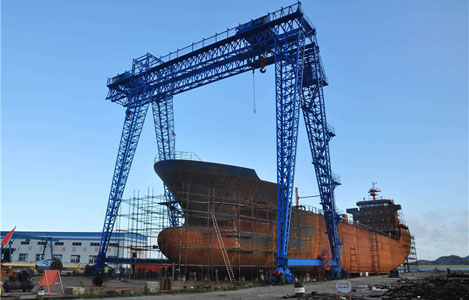Squaring the Arctic Circle
Updated: 2013-05-23 08:17
By Mei Xinyu (China Daily)
|
|||||||||||
Established in 1996, the Arctic Council has eight member states - the United States, Russia, Canada, Denmark, Sweden, Norway, Finland and Iceland. Initially, the council acted as a high-level intergovernmental forum to address the issues faced by the governments and peoples of the countries in the Arctic region. But climate change - and the resultant fear of the Arctic becoming ice-free in the near future - has made resource development, trade and shipping in the Arctic region matters of even greater strategic importance. As a result, many countries, and governmental and non-governmental organizations now hope to join the council.
Before its eighth ministerial meeting, the council had only a few European countries and non-governmental organizations as observers, while China, Japan, the Republic of Korea, Singapore, India, the European Union, Italy and Greenpeace had applied for similar status. The council's decision to make China - along with India, Singapore, Italy, Japan and the ROK - as observers is in line with the interests of both Beijing and its trade partners in the Arctic region. Besides, the observer status in the Arctic Council will help China play a greater role as a responsible global power.
But the council's expansion should not be taken as a unilateral favor to any country. In fact, it reflects the expectations of the council's member states. To become more influential in issues such as natural resources and climate change in the Arctic region, the council needs to have more member states. And Nordic countries have to increase their trade and shipping volumes if they want to exploit the mineral resources in the region.
Given the huge impact of the Arctic Circle on climate change, it would be unreasonable for a small group of countries in the region to decide issues that concern the fate of all the people in the world. If barred by the council from taking part in the forum and jointly making rules for regional issues, non-Arctic countries would sooner or later be forced to propose a new framework for the purpose which would eventually marginalize the council. Therefore, the decision of the Arctic Council to accept the participation of populous non-Arctic countries like China is an example of pragmatism and would serve the interests of all human beings.
Related readings:
Ice-free Arctic
China to play peaceful role in Arctic development
Need for Arctic protection
China welcomes Arctic Council's granting of observer status
Arctic: A land of opportunity
Today's Top News
China, Pakistan to set up economic corridor
Solar negotiations with EC fail
Special envoy from DPRK arrives
Consumers' demand for luxuries growing
Survey predicts fast growth in business travel
Consumers more willing to spend
Premier Li arrives in Pakistan for visit
H7N9 test reagents hit the market
Hot Topics
Lunar probe , China growth forecasts, Emission rules get tougher, China seen through 'colored lens', International board,
Editor's Picks

|

|

|

|

|

|





